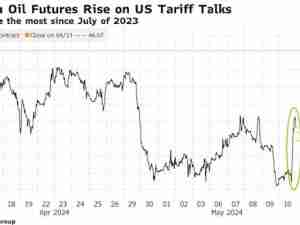US exporters hope China, Japan lift pig restrictions soon
By: Reuters | Apr 07 2014 at 04:57 PM | International Trade
U.S. livestock exporters hope China will lift restrictions on imports of live U.S. pigs by the end of April if tests can be agreed for a virus deadly to piglets, a trade group said.
China, the world's No. 1 pork consumer, and Japan have imposed "temporary restrictions" on U.S. pig imports until their agriculture ministries reach agreements with the United States on testing animals for the Porcine Epidemic Diarrhea virus, or PEDv, said Tony Clayton, president of the Livestock Exporters Association of the USA.
"Japan and China are the first two to officially notify the U.S., and they both happened this week," Clayton said, adding that import permits were being delayed.
The restrictions are on shipments of live U.S. animals that are used to develop genetic breeding programs. In 2013, China bought about $20 million worth of U.S. breeding pigs.
China has indicated that "it shouldn't take long" to establish testing protocols, Clayton said.
The U.S. Department of Agriculture is "capable and willing" to establish testing and certification protocols for live animals exported to China, said Joelle Hayden, spokeswoman for USDA's Animal and Plant Health Inspection Service.
The United States also is working with the Chinese government to remove the requirements, she said.
USDA representatives had no immediate comment on Japan.
The Ministry of Agriculture in Beijing could not immediately be reached.
Mexico last year restricted imports of live hogs from the United States. Japan, China and Mexico are among the top buyers of U.S. pork for meat.
The virus, nearly always fatal in piglets, has crimped hog supplies in the United States and sent prices to record highs. There are more than 4,700 cases in 27 states so far, according to the U.S. government. Some estimates suggest 4-5 million pigs have died since it was first reported in May 2013.
Some veterinarians in the United States think the U.S. outbreak can be traced back to China, which had its own outbreak of PEDv in 2010, said Chris Hurt, an agricultural economist at Purdue University.
"Any country would be very, very hesitant to be importing live animals from the United States at this point," he added.
China's own pork market is seeing sharply lower prices and further falls could come as the market is oversupplied.
Last month, Beijing announced plans to stockpile frozen meat to support the market, where prices have slumped to three-year lows and farmers are losing money on their hogs.
Wholesale pork prices are hovering at between 10-12 yuan per kilogram, compared with a 2011 high of about 20 yuan per kg, according to data from industry portal chinapig.cn. (Reuters)









